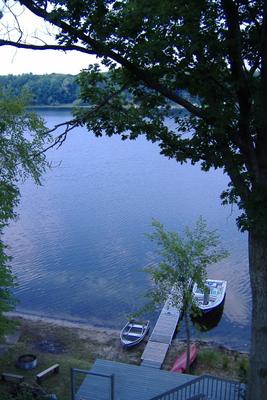This time yesterday, the editorial would have pissed me off. For awhile, do you know what else was pissing me off? Everybody at Daily Kos and Air America who blamed poor hurricane preparedness on the president.
Man, I was sitting around yesterday, congratulating myself for being mature and keeping the partisanship in check. I was annoyed by all the cheap shots, disgusted that these people were so wedded to their anger at the president that they saw his handiwork in a natural disaster.
Then, Kos linked to this:
Yet after 2003, the flow of federal dollars toward SELA dropped to a trickle. The Corps never tried to hide the fact that the spending pressures of the war in Iraq, as well as homeland security -- coming at the same time as federal tax cuts -- was the reason for the strain. At least nine articles in the Times-Picayune from 2004 and 2005 specifically cite the cost of Iraq as a reason for the lack of hurricane- and flood-control dollars.And this.
Newhouse News Service, in an article posted late Tuesday night at The Times-Picayune Web site, reported: "No one can say they didn't see it coming. ... Now in the wake of one of the worst storms ever, serious questions are being asked about the lack of preparation."
In early 2004, as the cost of the conflict in Iraq soared, President Bush proposed spending less than 20 percent of what the Corps said was needed for Lake Pontchartrain, according to a Feb. 16, 2004, article, in New Orleans CityBusiness.
On June 8, 2004, Walter Maestri, emergency management chief for Jefferson Parish, Louisiana; told the Times-Picayune: "It appears that the money has been moved in the president's budget to handle homeland security and the war in Iraq, and I suppose that's the price we pay. Nobody locally is happy that the levees can't be finished, and we are doing everything we can to make the case that this is a security issue for us."
. . .
The Newhouse News Service article published Tuesday night observed, "The Louisiana congressional delegation urged Congress earlier this year to dedicate a stream of federal money to Louisiana's coast, only to be opposed by the White House. ... In its budget, the Bush administration proposed a significant reduction in funding for southeast Louisiana's chief hurricane protection project. Bush proposed $10.4 million, a sixth of what local officials say they need."
Local officials are now saying, the article reported, that had Washington heeded their warnings about the dire need for hurricane protection, including building up levees and repairing barrier islands, "the damage might not have been nearly as bad as it turned out to be."
Would a billion dollars in levee infrastracture have prevented the flooding? I'm not a civil engineer, but if Venice and the Netherlands did it, it must be possible.
A year ago the U.S. Army Corps of Engineers proposed to study how New Orleans could be protected from a catastrophic hurricane, but the Bush administration ordered that the research not be undertaken. After a flood killed six people in 1995, Congress created the Southeast Louisiana Urban Flood Control Project, in which the Corps of Engineers strengthened and renovated levees and pumping stations. In early 2001, the Federal Emergency Management Agency issued a report stating that a hurricane striking New Orleans was one of the three most likely disasters in the U.S., including a terrorist attack on New York City. But by 2003 the federal funding for the flood control project essentially dried up as it was drained into the Iraq war. In 2004, the Bush administration cut funding requested by the New Orleans district of the U.S. Army Corps of Engineers for holding back the waters of Lake Pontchartrain by more than 80 percent. Additional cuts at the beginning of this year (for a total reduction in funding of 44.2 percent since 2001) forced the New Orleans district of the Corps to impose a hiring freeze. The Senate had debated adding funds for fixing New Orleans' levees, but it was too late.
Compassion aside, we all have an incentive to care about what happens in rebuilding New Orleans. If you believe in global warming, New Orleans could be a laboratory for securing urban coastal environments; if you believe in terrorism, New Orleans may provide a lesson in how to rebuild a devastated metropolis.
Yesterday, in what the Times described as "one of the worst speeches" of the president's life, the American president said this:
The folks on the Gulf Coast are going to need the help of this country for a long time. This is going to be a difficult road. The challenges that we face on the ground are unprecedented. But there's no doubt in my mind we're going to succeed. Right now the days seem awfully dark for those affected -- I understand that. But I'm confident that, with time, you can get your life back in order, new communities will flourish, the great city of New Orleans will be back on its feet, and America will be a stronger place for it.Uh ... no, it won't.
He always sees strength via death and destruction. He is terrifying.
Hundreds of thousands of refugees, a city turned into a toxic waste zone, armed gangs run amok, a breakdown in infrastructure, and a wholly incompetent leadership class: It's looking as if we live in a third-world country. He sees strength.
The race issues explain themselves. If 80,000-plus patrons of the Gap were at risk of death by disease or drowning, FEMA and other executive agencies would be in New Orleans like white on rice.







